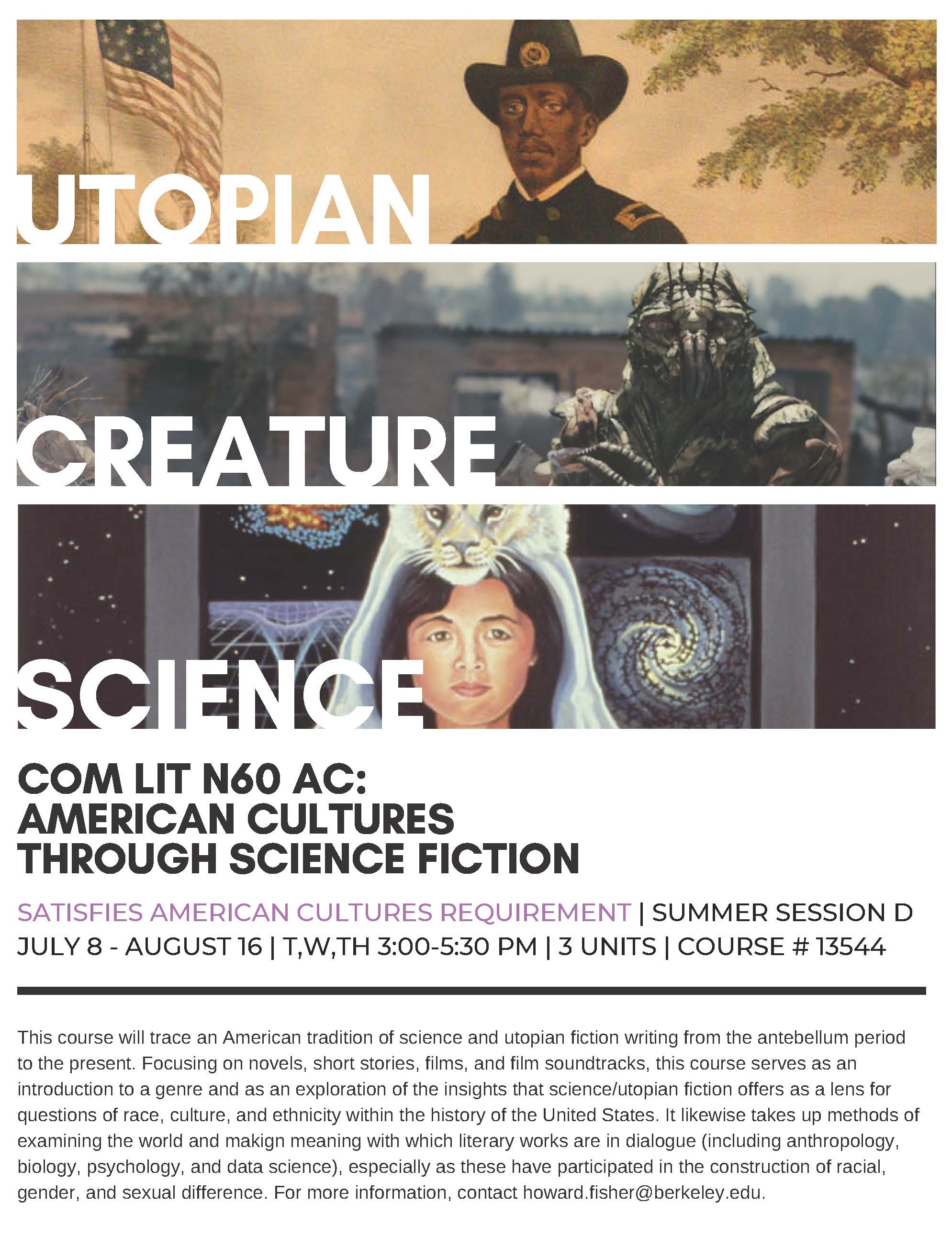Topics in the Literature of American Cultures
Utopian Creature Science: American Cultures through Science Fiction

“I’ve seen justice for all genders and classes and sexualities, and it was as alien to me as the extra-terrestrial creatures who practiced it. This image of justice sprang from my own imagination, taking place on another planet, in another time, for a species of people very unlike humans. It took science fiction for me to see a clear picture of what justice could be. And at the end of the day, that’s all it was – fiction.”
Maisha Johnson, “What Good is Science Fiction to Black People?” Black Girl Dangerous, 21 Oct. 2014, accessed 15 Mar. 2017.
This course will trace an American tradition of science and utopian fiction writing from the antebellum period to the present. Focusing on films, novels, and especially short stories, the course serves as an introduction to the genre and as an exploration of the insights that science/utopian fiction offers as a lens for examining questions of race, culture, and ethnicity within the history of the United States. The course specifically develops students’ understanding of the forms that distinguish these genres and connects these to a critical language for discussing matters of ethnic and racial diversity. It likewise takes up literature as an imaginative space to both adopt and reflect upon other methods for making meaning about the world (including anthropology, biology, and psychology), especially as these have participated in the construction of rachial and ethnic difference.
The central questions that structure the course begin with the fundamental problem of fiction in general: How do writers go about concocting a story that does not refer to actual events in the world but is nonetheless believable and perhaps true in other ways? From here we proceed to matters of the distinctive formal qualities of the science fiction short story: What uses of language allow a work of science fiction to set up, with remarkable economy, a vision of a world? And what do we mean by “world” here? How does the language of a story signal (and how do readers recognize) similarities and locate differences between historical circumstances and the circumstances described in science fiction? As we read science fiction works for their formal characteristics, we will also consider the uses of the genre. What kinds of desires and fears do the worlds of American utopian fiction enact? When do they do so critically as opposed to unthinkingly, and how do we tell the difference? In the above passage, Maisha Johnson implies a close connection between social structures and the createdness of a variety of beings (a “species”). What can science fiction teach us about the “creatureliness” or constructedness of categories of people, and how is this linked to its reimaginings of society? More specifically, how have African-American and Native-American writers and filmmakers given form to their marginalized experiences and to political projects for social justice through science fiction?
Required Texts:
Martin R. Delany, Blake, or The Huts of America (ISBN: 978-0674088726)
Zainab Amadahy, The Moons of Palmares (ISBN: 978-1494208462)
Required Screenings:
District 9 (2010), dir. Neill Blomkamp
Space is the Place (1979), dir. John Coney
To enroll: go to summer.berkeley.edu